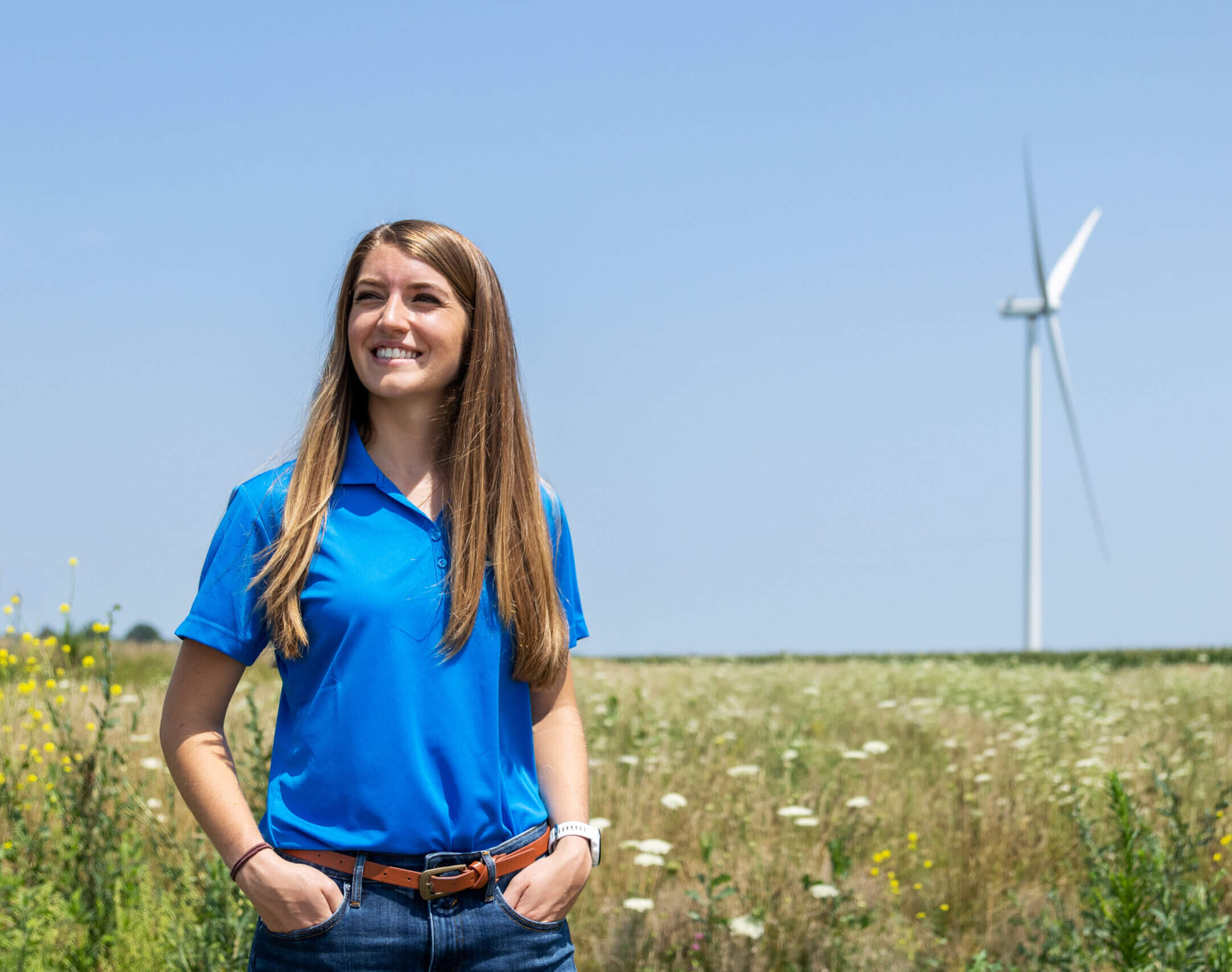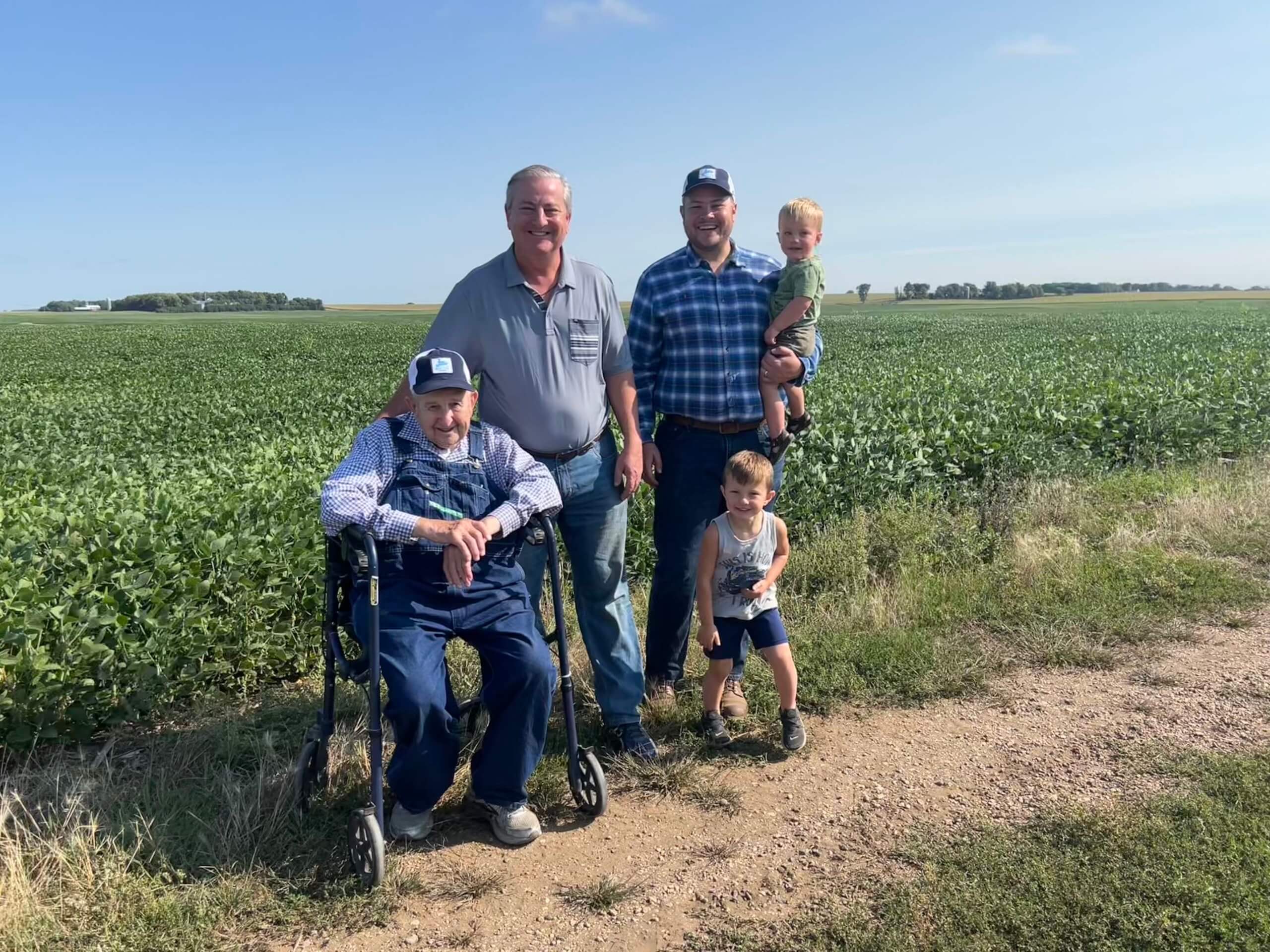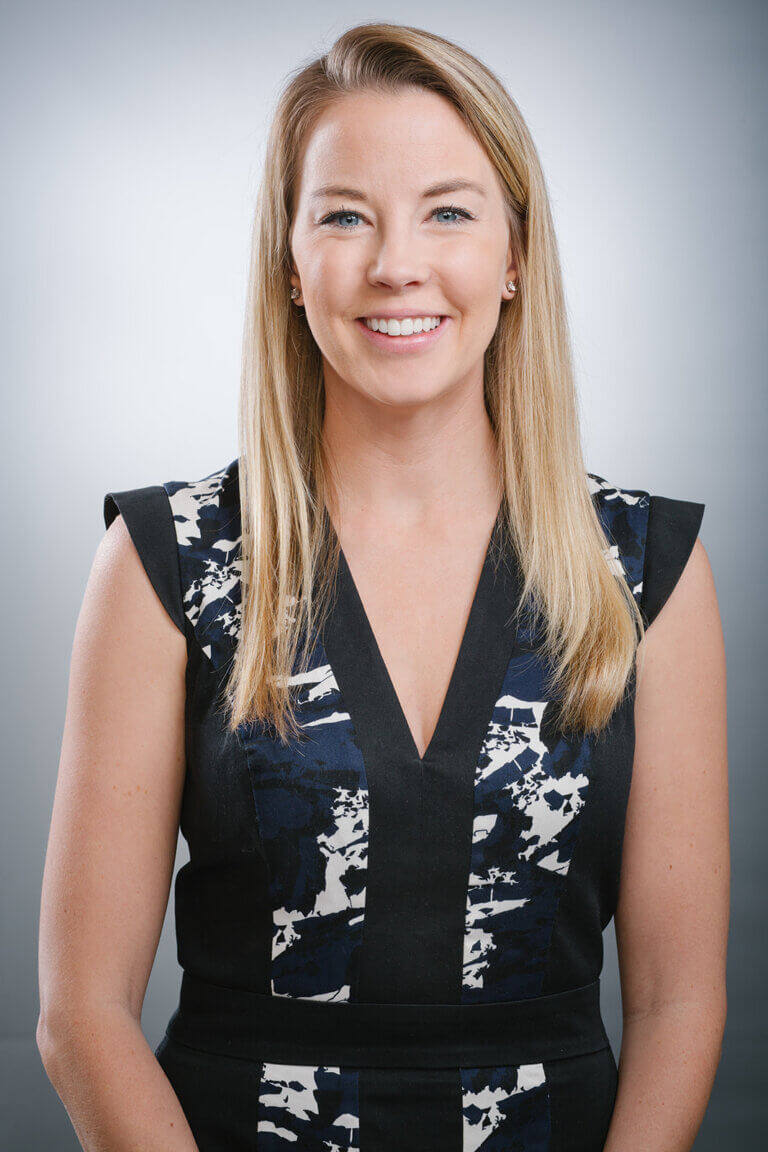An Apexer’s Energy Evolution
Julianna Malkin embraces a one-of-a-kind approach to development.
Julianna Malkin gazed out at the expansive view before her—both exhilarating and intimidating, but most of all, rewarding.
Around her, sleek white blades smoothly swept arcs in the blustery Kansas sky, and tiny freckles dotted the panoramic rural landscape below—the occasional whitewashed farmhouse in the distance, a cherry-red pickup truck speeding along a county road, an emerald-green tractor slowly pacing the fields—tangible reminders of the lives benefiting from the project she helped build.
This perspective, 580 feet atop a wind turbine in Crawford County, Kansas, was the culmination of more than three years of Malkin’s professional life.
“For years, this project lived as a map on a computer or a piece of paper,” said Malkin, senior development manager at Apex Clean Energy. “Finally seeing a project from inception, bringing it through the full development cycle to construction, and then seeing it come to life for a community like the areas I grew up in was remarkable.”
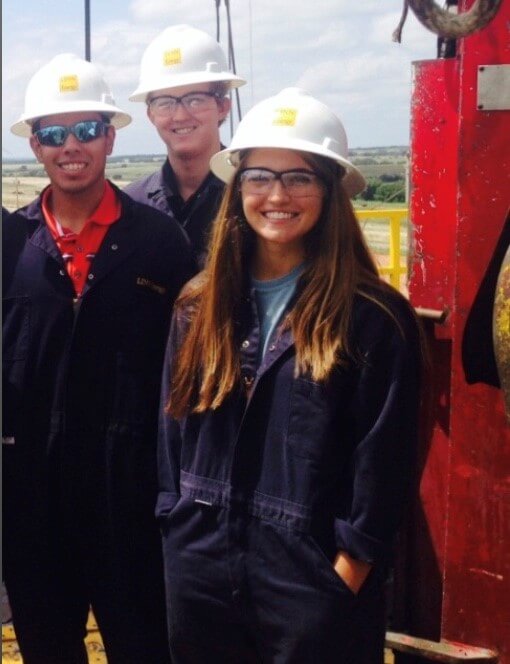
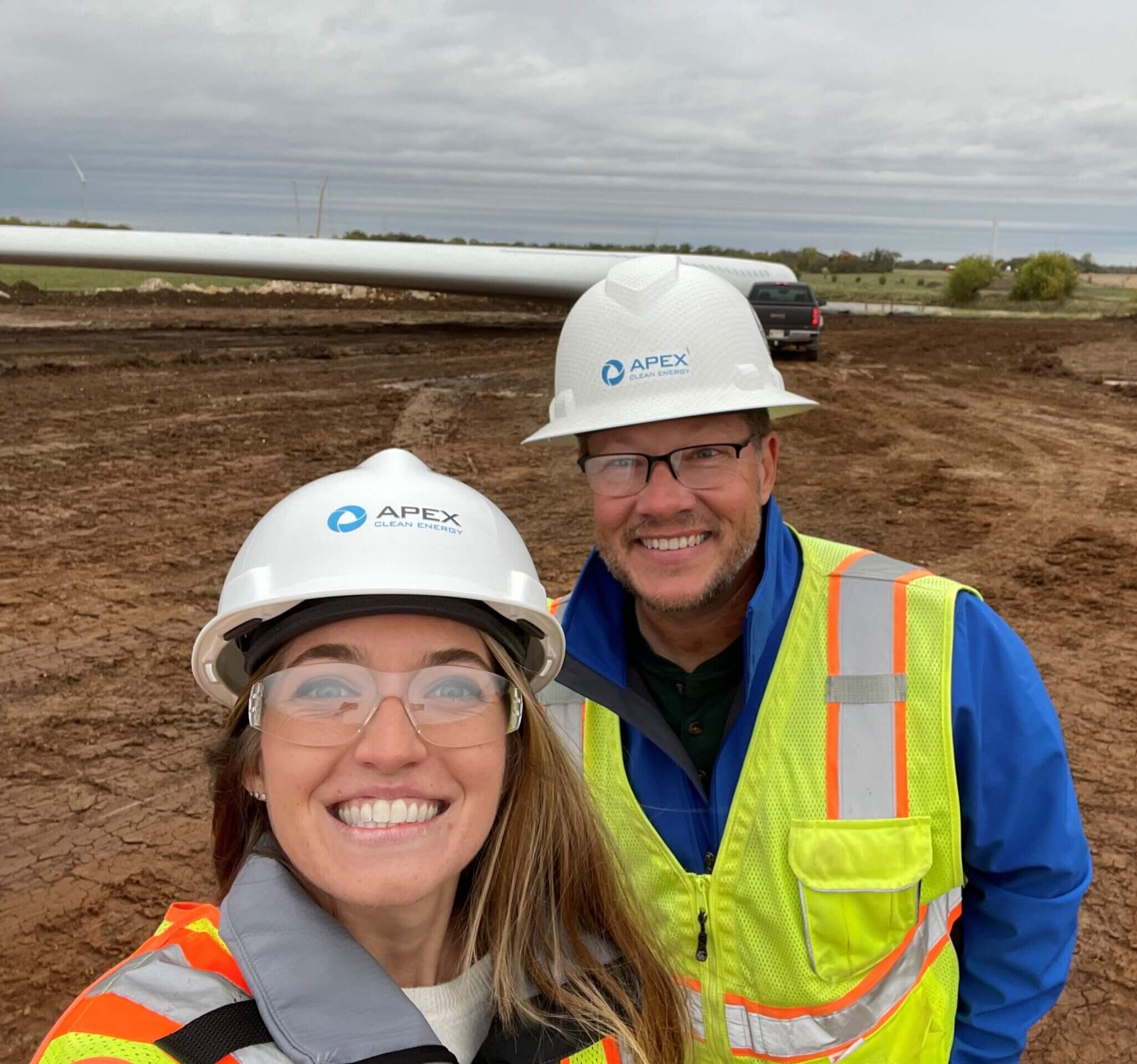
Raised in Texas and Oklahoma, Malkin recognized firsthand that energy was the bedrock of many rural communities like her own.
“For locals, these projects can make such an impact, whether that’s in terms of tax dollars for schools or landowner revenue to support the family farm for another generation,” Malkin said.
Following in her grandfather’s footsteps, she had pursued a degree in business and energy management at the University of Oklahoma to work in oil and gas—only deviating from his path for a master of science in energy policy and climate from Johns Hopkins University. But after working in the fossil fuel industry, she jumped at the opportunity to take her energy experience in an entirely new direction: renewables.
An Unparalleled Approach
On the surface, developing a new energy project of any type can look familiar—but for Malkin, at the core of this career transition was a fundamental belief in supporting communities, and most especially future generations. At Apex, she found a unique development approach that aligned with those values.
“We’re investing hundreds of millions of dollars and we’re going to be operating these projects for thirty or more years, so we want to make sure that we’re truly a part of that community. That begins with building trusting relationships,” said Malkin.
Just as no two communities are quite alike, neither are Apex’s projects—nor is the company’s approach to developing in those communities.
“We take a unique approach to development, adapting and designing our projects to the local area and its needs,” noted Malkin. “It’s not a one-size-fits-all attitude, and we take great pride in being a true community member
and community partner at every project.”
From the start, Apex developers apply this customized, relationship-oriented approach in a myriad of ways: developers meet over dinner tables for lengthy conversations about leasing and clean energy. The projects offer community grants that support local organizations—a financial demonstration of Apex’s commitment to an area, even before there’s steel in the ground. The team interfaces with elected officials and hosts open houses, leaning on the company’s many subject matter experts to share their knowledge with community members, answer questions, gather feedback, assuage potential concerns, and create the best project possible.
“As a developer, I’m able to leverage the expertise of folks across departments—engineering, project management, environmental, and beyond—so that locals can really understand from the subject matter experts themselves what to expect from a project,” said Malkin.
Just as no two communities are quite alike, neither are Apex’s projects—nor is the company’s approach to developing in those communities.
Having such a deep bench of internal expertise not only provides peace of mind, but also means that Apex is uniquely suited to craft projects specifically to the needs of various communities and to surmount the many hurdles of development.
“One of our main roles as developers is working through roadblocks and de-risking projects. Every project faces challenges, but at Apex, we’re able to leverage our internal subject matter experts to really understand the barriers that are in front of us and overcome them with creative solutions,” said Malkin. “Our entire team has this mindset centered on execution. We’re all focused on getting projects completed and bringing tax dollars and revenue to communities.”
Exploring an Endless Landscape of Opportunity
For Malkin, the turbine she was perched atop represents the first of many projects she’s advancing, but far from the last. From that vantage point, the horizon is scattered with endless possibilities—a fact that attracted Malkin to the industry and Apex from the very beginning.
“In the energy industry, you are always a student. At Apex, to be able to work on different technologies has been instrumental to my career development,” said Malkin.
Since her first project reached operations, Malkin has continued to work on wind while expanding her scope of expertise to include other technologies—tracking Apex’s trajectory over the years. From its original mandate to develop utility-scale wind facilities, the company has grown to encompass utility-scale solar, distributed energy resources, battery storage, and green fuels.
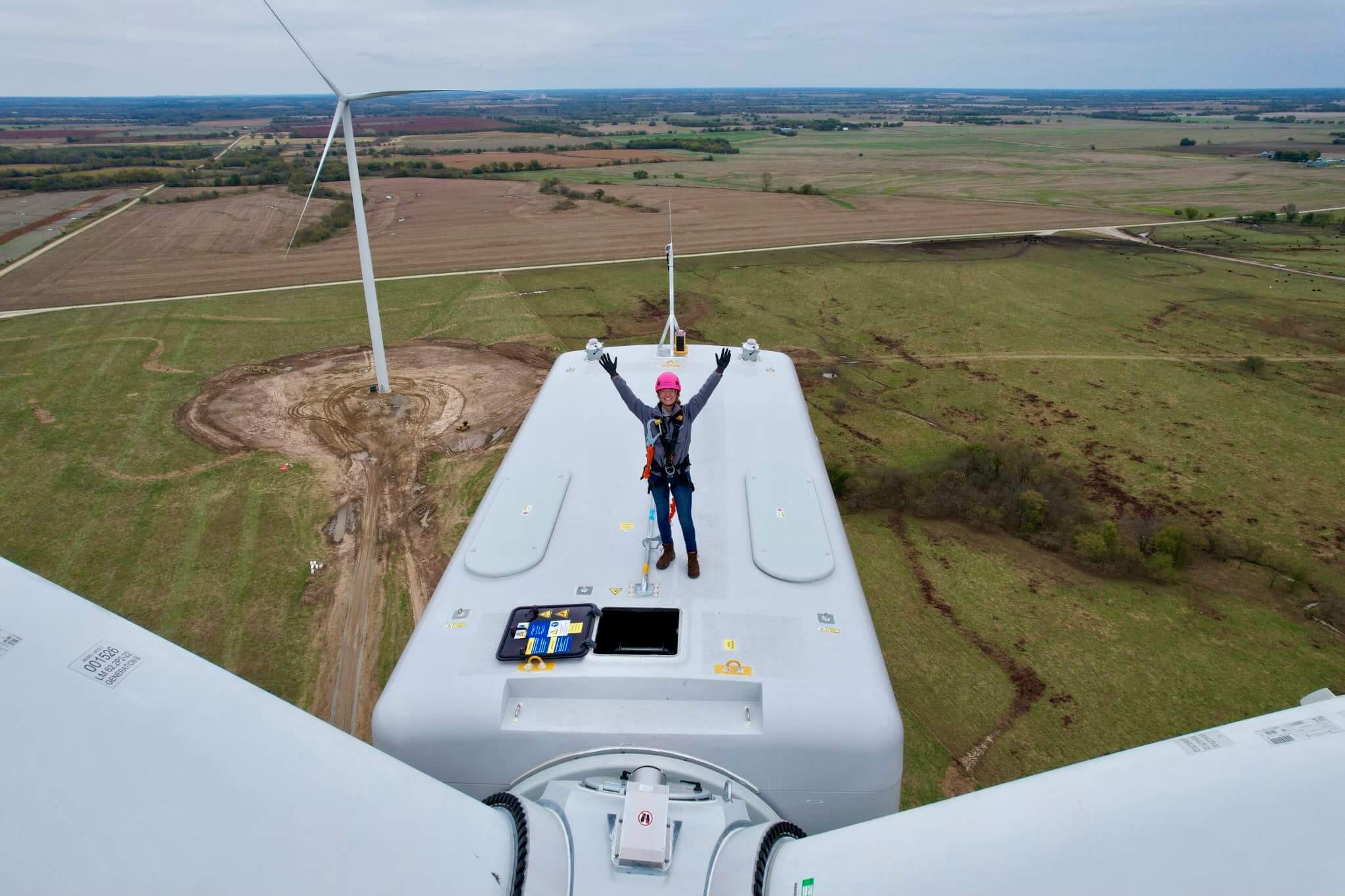
Although the technologies may be varied, Apex’s values- and mission-driven approach to development remains true.
“Development is the inflection point where business, engineering, technology, and science come together,” said Malkin. “You’re doing something different every day, and ultimately you’re bringing a
project to life. That is one of the most rewarding things I could have done in my career.”
